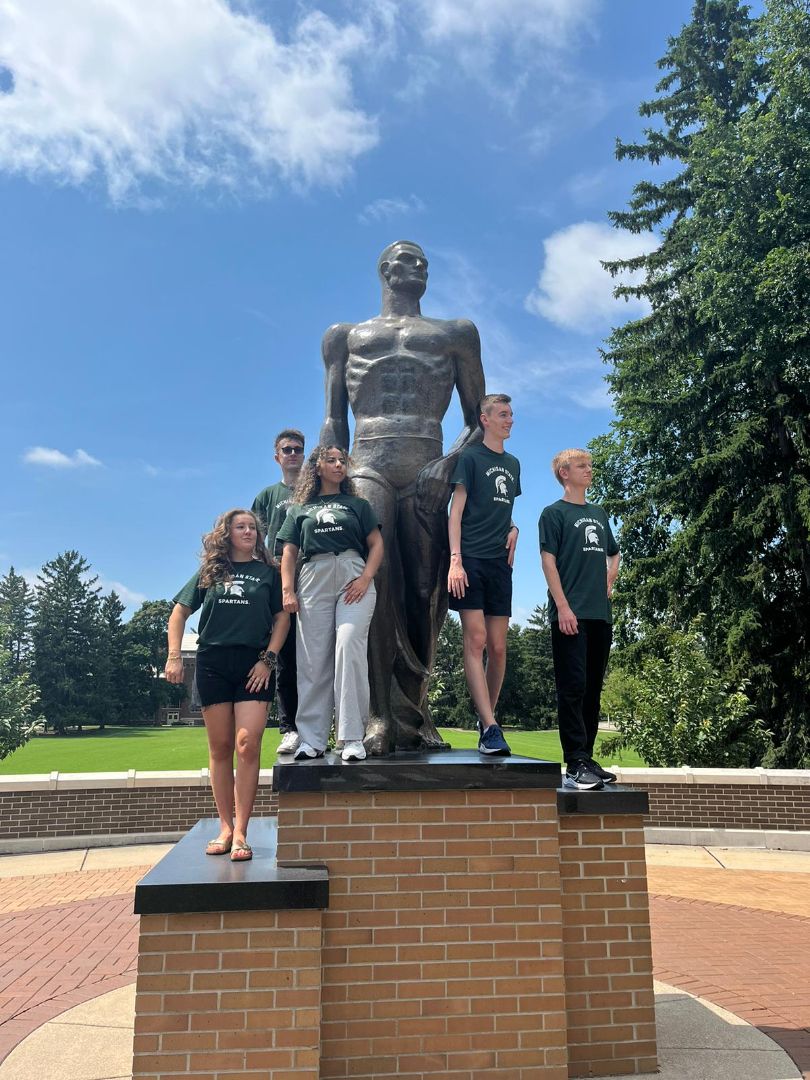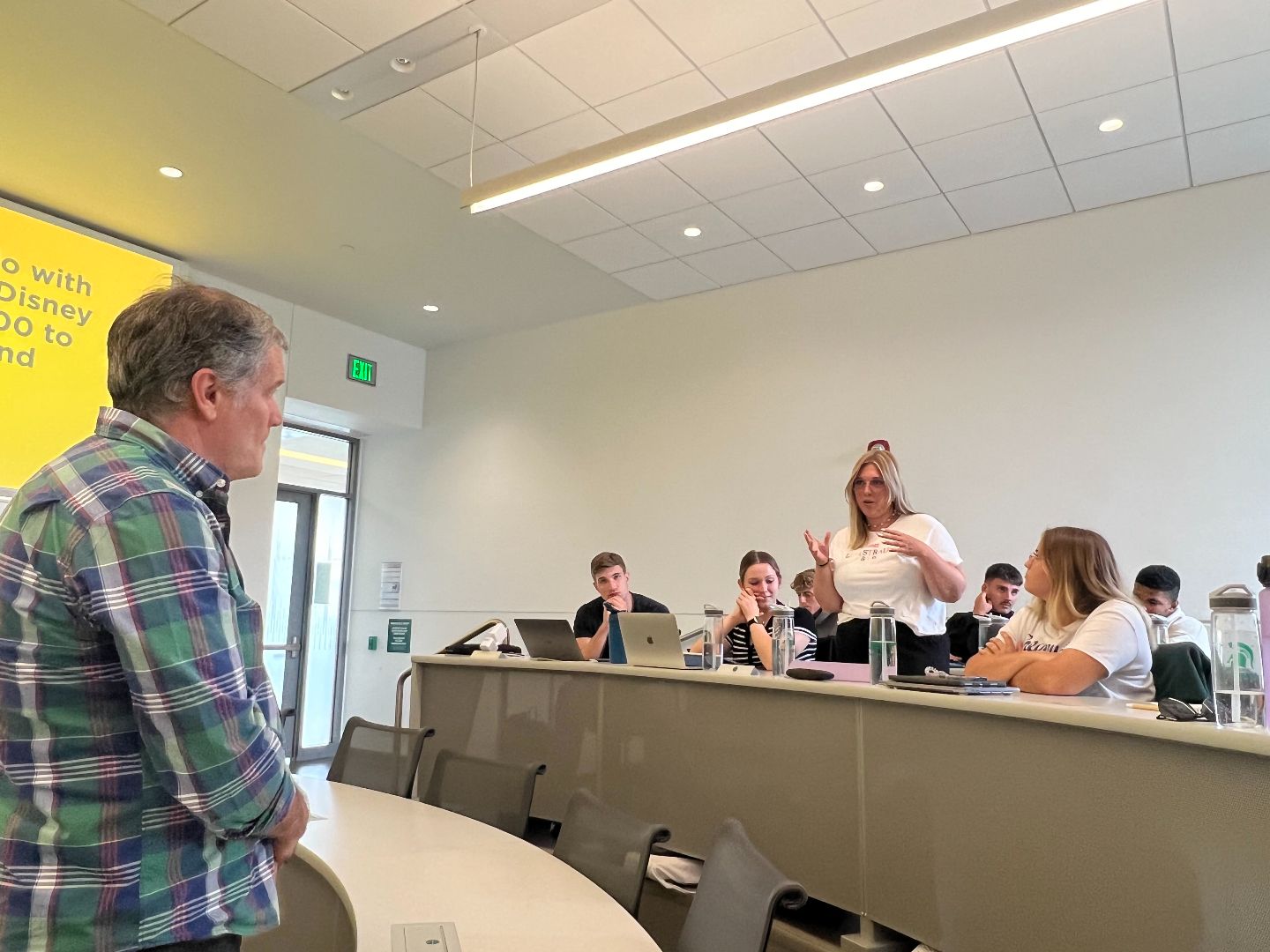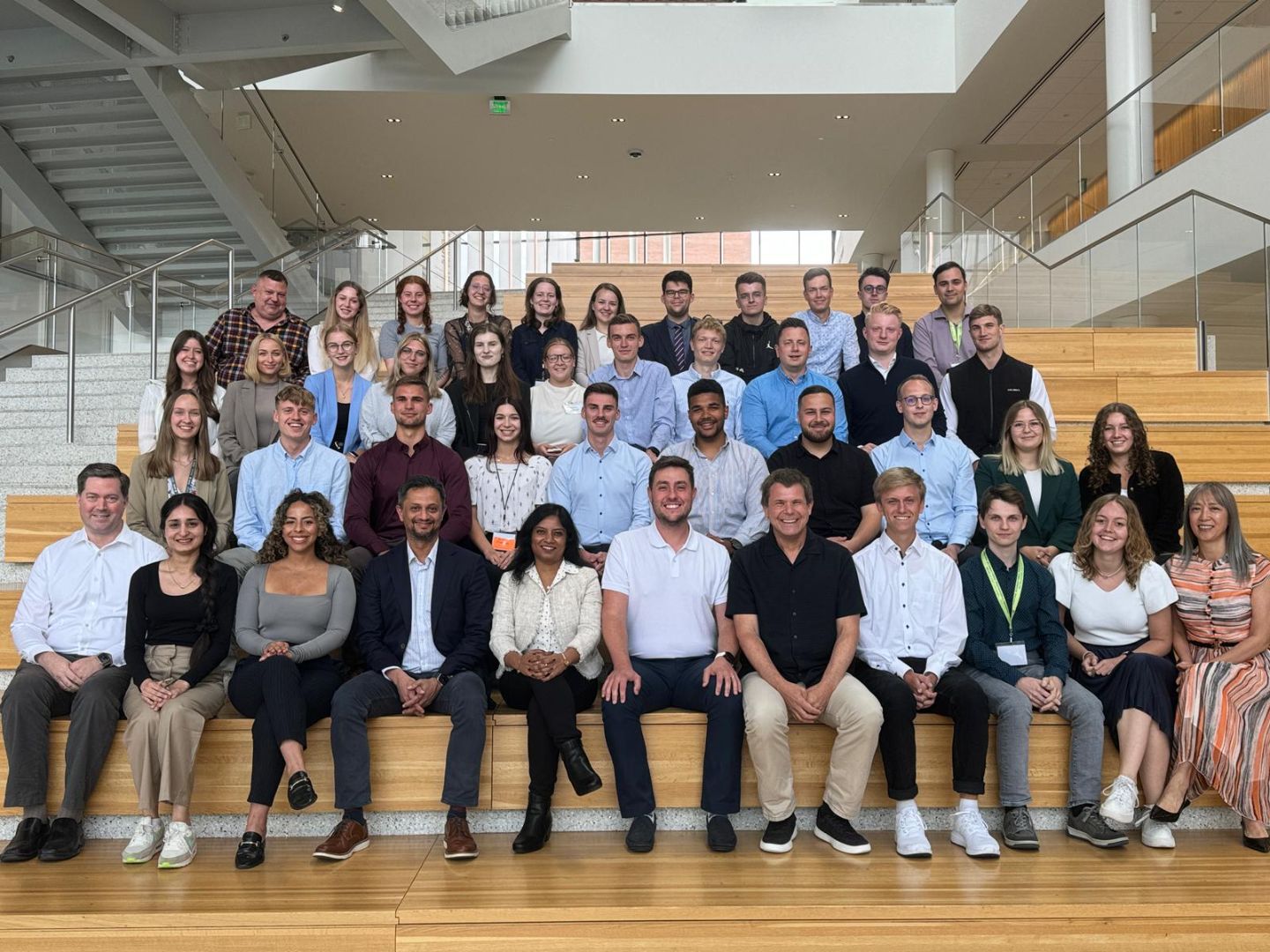Michigan State University welcomed 30 undergraduate students from universities across Germany for the three-week German Fulbright Summer Institute, a collaboration between the Visiting International Professional Program, or VIPP, and the College of Communication Arts and Sciences.

In its fourth year, MSU German Fulbright Summer Institute is one of four VIPP globally engaged summer programs that welcomes students or scholars to campus. The Institute’s primary focus is to encourage leadership in the workplace while developing ideas about entrepreneurship, innovation and cultural diversity.
The program’s curriculum includes seminars about American culture and society, which are geared for students pursuing careers in business or engineering. The daily sessions emphasized best practices for navigating cultural differences in the workplace and creating a culture of mutual understanding within professional relationships.
Weekdays consisted of structured programming on campus during the mornings and afternoons with flex time available during meals and evenings. Weekends provided students opportunities to explore the state of Michigan with day trips to the Ann Arbor Art Fair, the Henry Ford Museum and the beach in Saugatuck.
Toward the end of the first week, students listened and engaged in a panel discussion featuring Nirad Pandya, head of e-mobility programs at Vitesco Technologies; Henry Julicher, senior consultant of Cargobase; Jacqulin Preethi, finance director of BorgWarner Power Drive Systems; and Marc Rosenmayr, senior executive of Coventry Consulting. Panelists discussed the nuances of communication in a business setting, including the importance of small talk in American business culture to approaches women must take to advocate for themselves in a male-dominated industry.

Following the panel discussion, the Global Business Networking Event provided students an opportunity to put some of the information they learned into practice. The event also fostered opportunities for those attending to network with representatives from a multitude of German companies and organizations including the Deputy Consul General of Germany, the Michigan Economic Development Corporation and the German American Business Council of Michigan.
The Institute’s second week provided students an introduction to creative entrepreneurship and innovation. Taught by Ross Chowles, professor of public relations and advertising in the College of Communication Arts and Sciences, the daily courses provided engaging ways for students to think about their strengths. One lesson that resonated for many was the importance of “knowing that your ‘freak’ is an asset.”
“My favorite course by far is the creative entrepreneurship course with Dr. Chowles,” said Wayne Boykin, a chemistry student at Hochschule Darmstadt of Applied Sciences in Darmstadt, Germany. “It’s really nice to learn something more creative for a change.”
Each year, the Institute assigns a culminating project for students to present toward the end of their program. This year’s project was to create a business pitch to increase attendance at Lansing Lugnuts games. With about a week to develop the concept and one day to create a promotional video and professional presentation, pitches spanned from party buses to a themed car wash to a Lugnuts-themed dating app and corresponding singles night.

The Stadium group, which placed second among five groups after the audience weighed in, put forth a pitch offering transportation to Lansing’s Jackson Field for senior citizens and wheelchair users. The group’s slogan ‘‘We Share Joy,” resonated with audience voters as it embodied the Institute’s model to use creative innovation to address issues of social justice and inclusion.
“What helped us best in this project was to just create things as we go, and put effort into our work no matter what. We ended up changing our idea last minute, so you really can’t focus on just one idea in the creative process,” said Stadium group member Emma Nagy, a business administration student at Technische Hochschule Mittelhessen University of Applied Sciences in Giessen, Germany.
Chowles was confident German Fulbright students returned to their home cities having experienced one of the most important life lessons.
“I want my students to live without regret, and to set themselves on a path towards achieving their dreams,” Chowles said. “I don’t want them to lie in bed when they’re old regretting what they didn’t do.”
The program concluded on August 2. To learn more about VIPP and the German Fulbright Summer Institute, visit International Studies and Programs.